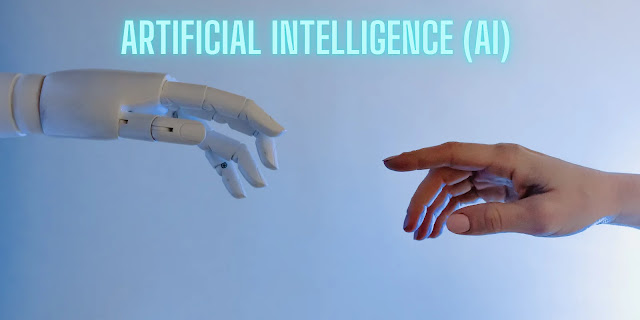Let's talk about Artificial Intelligence (AI) - a fascinating branch of computer science that's all about creating machines or computer systems that can think and behave like humans. AI has the potential to revolutionize the way we live and work, but it's important to be mindful of its impact on society.
Keynotes
-
So, what exactly is AI? Simply put, it's all about giving computers the ability to understand natural language, make decisions, and learn from experiences. There are several different approaches to creating AI, but the most common ones include rule-based systems, expert systems, machine learning, neural networks, and Natural Language Processing (NLP). applications that interact with people.
How does it works
One of the coolest applications of AI that you might have heard of is self-driving cars. These cars use sensors like cameras and lidar to understand their environment and make decisions, and they get better at it over time through machine learning. AI is also being used in other industries like healthcare, finance, and retail to analyze data, make predictions, and personalize experiences.
But with all the exciting potential of AI, there are also some valid concerns that we need to address. For example, there's the fear of job loss as machines become better at performing tasks previously done by humans. There's also the fear of AI being used for unethical purposes, like creating autonomous weapons.
Pros and Cons
There are several potential benefits and drawbacks of artificial intelligence (AI) technology.
Pros:
- Increased efficiency: AI can process large amounts of data quickly and accurately, which can increase productivity and efficiency in various industries.
- Improved decision-making: AI can help identify patterns and insights that humans might miss, leading to better decision-making in fields like healthcare, finance, and retail.
- Personalization: AI can personalize experiences, like recommending products based on a customer's browsing history.
- Automation of repetitive tasks: AI can automate repetitive and dangerous tasks, freeing up human workers to focus on more complex tasks.
- Advancement in research: AI can analyze data and find new insights in fields like medicine, astrophysics, and climate research.
Cons:
- Job loss: AI can automate jobs that were previously done by humans, leading to job loss and economic dislocation.
- Bias and Discrimination: AI systems can perpetuate and even amplify biases present in their training data, leading to discriminatory outcomes.
- Lack of transparency: AI systems can be opaque in the way they make decisions, making it difficult to understand and trust their actions.
- Dependence: As AI systems take on more tasks, there's a risk that people may become overly dependent on them, losing their own skills and abilities.
- Security and privacy: As AI systems become more advanced, there's a risk they could be used for malicious purposes like hacking and cyber attacks.
- Ethical concerns: As AI systems become more advanced, there's a risk they could be used for unethical purposes like creating autonomous weapons or invading people's privacy.
So there you have it - the pros and cons of AI. It's important to be aware of the potential drawbacks and to actively work to mitigate them. It's also important to ensure that the development of AI is guided by ethical principles and that its impact on society is closely monitored.
In conclusion, AI is a rapidly evolving field with the potential to change our lives in many ways, but it's important to proceed with caution and be mindful of its impact on society.

